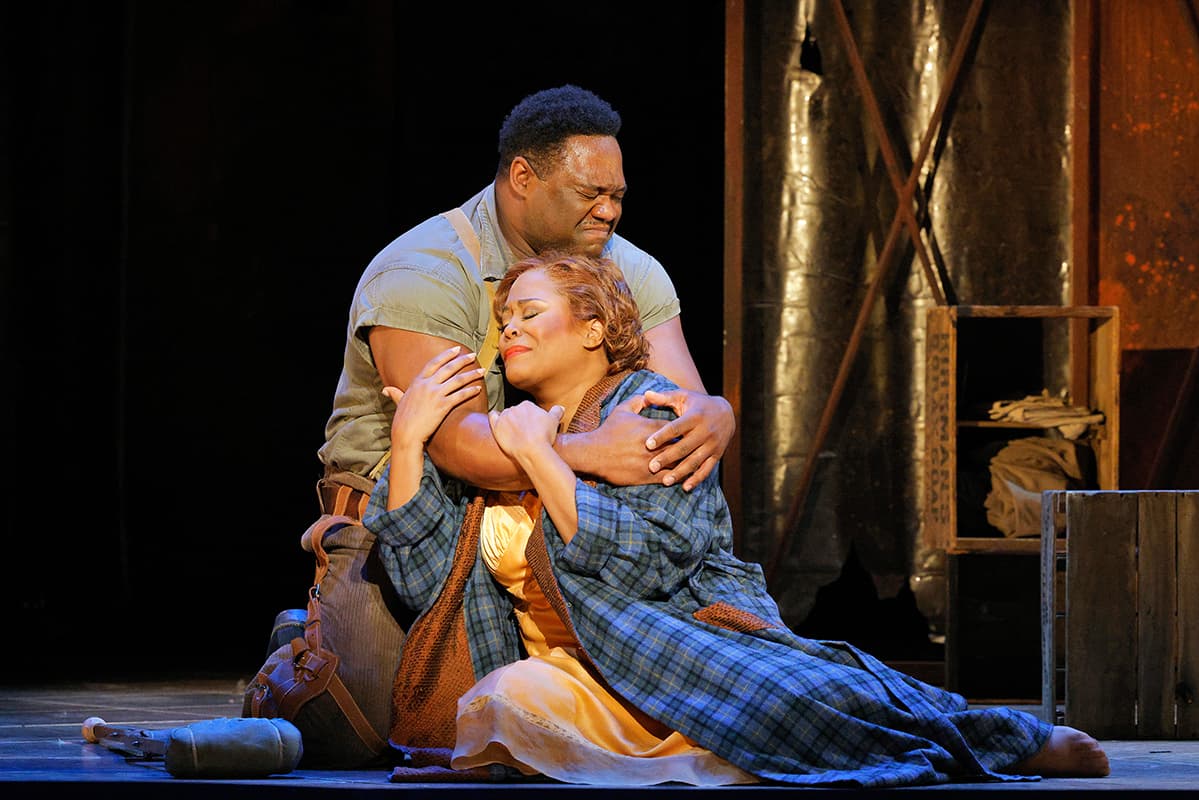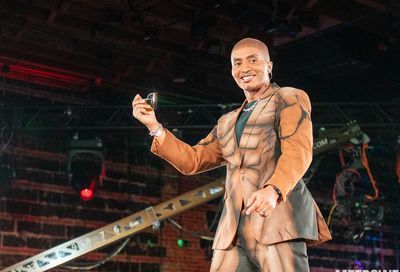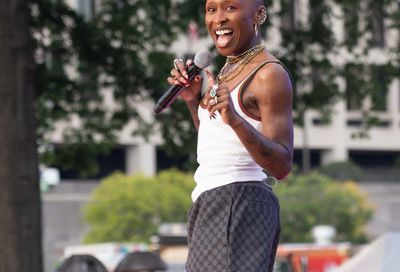‘Rustin’ Review: Truth Be Told
A stirring portrait of an oft-unsung civil rights hero and queer trailblazer, 'Rustin' doesn't deliver on all of its promise.

Without Bayard Rustin, would there have been a 1963 March on Washington for Jobs and Freedom? Would Martin Luther King, Jr. have stood before the world to offer his vision for progress with “I have a dream”?
The Civil Rights Movement still might have arrived at exactly the point where it is now, but would the Civil Rights Act, outlawing discrimination on the basis of race, color, religion, sex, and national origin, have passed in 1964 were it not for thousands marching the year before?
Rustin, the long-awaited biopic directed by George C. Wolfe, and written by Julian Breece and Dustin Lance Black, drives home the point that the arc of U.S. history might have bent more slowly towards justice had Bayard Rustin not had a hand in shaping it.
More pointedly, the film illustrates that the unapologetically Black, gay, left-wing activist would have done even more for oppressed communities had members of his own community not driven him out into the cold just because he was queer.
Portrayed with revolutionary fire by Colman Domingo, Rustin enters the 1960s as an influential adviser to Dr. King (Aml Ameen, beautifully understated).
The men are also good friends who move in an esteemed but somewhat contentious circle of Black civil rights leaders, including activist Ella Baker (Audra McDonald), union organizer A. Philip Randolph (Glynn Turman), and NAACP leader Roy Wilkins (Chris Rock).
Wilkins, in particular, represents the Movement’s old guard. He might appreciate Rustin’s contributions to successes like the bus boycott in Montgomery, but professes disgust at his “unmentionable” sexual proclivities.
On the other hand, larger-than-life New York congressman Adam Clayton Powell, Jr., in the fast-talking form of Jeffrey Wright, will not only mention Rustin’s queerness, but will gladly use it as a weapon against Rustin and King.
Turning the film’s most flagrant asshole into its most reliable comic relief, Wright eats up the screen and stiff screen partner Rock in a scene where Powell and Wilkins hatch a plot to force King to drop Rustin. If King doesn’t cooperate, they’ll smear him with the rumor that the pair are lovers.

Sometimes, we see, even under hostile circumstances, a queer person can be confident enough to live out of the closet, but it is the friends, family, or colleagues who insist on keeping them locked in there.
Yet, Rustin can only be who he is, and, alas, King does not stand up for his friend. Rustin is ousted. Whether their partnership can ever be repaired becomes the crux of the movie, and, plotwise, of vital importance to the potential success of the ’63 March.
Against the objections of some in the Movement, Randolph recruits Rustin to help organize the protest, originally planned as a commemoration of Lincoln’s signing of the Emancipation Proclamation. Rustin, working with his fired-up group of “angelic troublemakers” in the War Resisters League, comes on board, and from there, the film marches behind Domingo’s blazing performance towards that beautiful August 28, 1963, in Washington, D.C.
Wolfe captures the event using vintage footage of Marchers arriving in D.C. and on the Mall, intercut with shots of the cast sprinkled among speakers and views of the rather unpersuasive, CGI-assisted crowd. Down to Da’Vine Joy Randolph’s wan facsimile of Mahalia Jackson performing at the podium, the actual March is among the film’s less inspiring passages.
Earlier scenes bop and bounce more like the jazz on the soundtrack, like the urbane but impassioned manner of Domingo’s multifaceted portrayal. Away from awkwardly staged historical events, the film treads on surer ground depicting Rustin’s complicated relationship with assistant and erstwhile lover Tom (Gus Halper), who’s white, and can only watch as Rustin romances conflicted, closeted activist preacher Elias Taylor (Johnny Ramey), who’s married.
The parallel threads of Rustin’s historic friendship with one reverend, and his unmentionable liaison with another weave an intriguing tapestry. In romance, as well as in his work with the Movement, Rustin chafes against “the suffocating chains of Negro respectability.” Like anyone, he has to battle his own demons to stay true to himself. But, to an unusual and unjust degree, he has to fight his own people in order to freely be himself.
Rustin (★★★☆☆) is playing in select theaters, including Landmark’s E Street and Bethesda Row Cinemas in the D.C. area, and will be available for streaming on Nov. 17 on Netflix. Visit www.fandango.com or www.netflix.com.
Support Metro Weekly’s Journalism
These are challenging times for news organizations. And yet it’s crucial we stay active and provide vital resources and information to both our local readers and the world. So won’t you please take a moment and consider supporting Metro Weekly with a membership? For as little as $5 a month, you can help ensure Metro Weekly magazine and MetroWeekly.com remain free, viable resources as we provide the best, most diverse, culturally-resonant LGBTQ coverage in both the D.C. region and around the world. Memberships come with exclusive perks and discounts, your own personal digital delivery of each week’s magazine (and an archive), access to our Member's Lounge when it launches this fall, and exclusive members-only items like Metro Weekly Membership Mugs and Tote Bags! Check out all our membership levels here and please join us today!


































You must be logged in to post a comment.